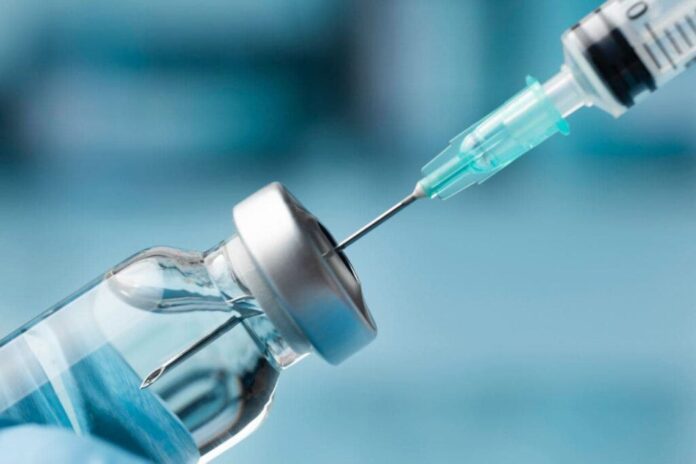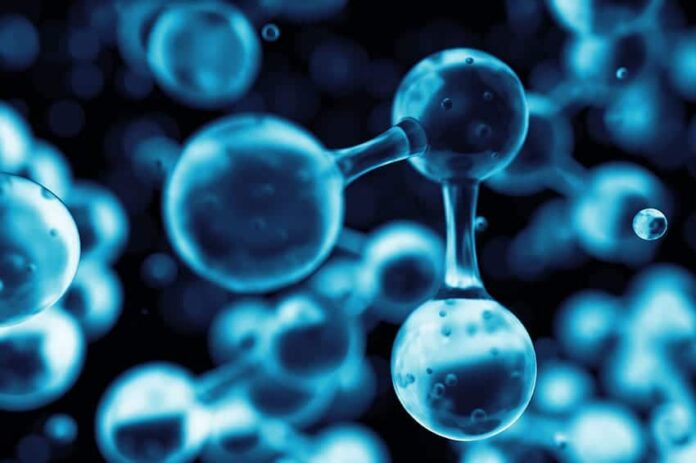Peptides are short chains of amino acids, which are the building blocks of proteins. Peptides can have various biological functions, including signaling molecules, hormones, neurotransmitters, and antimicrobial agents.
They are produced naturally in the body and can also be synthesized artificially in the laboratory. Peptides have become increasingly popular in medical and cosmetic applications due to their potential therapeutic benefits and safety profiles.
They are typically administered via injection, oral ingestion, or topical application. With advances in peptide synthesis and research, the potential for new peptide-based therapies continues to expand.
How to Buy Peptide for Sale Online
If you are interested in buying peptides online, here are some steps to follow:
- Research: Before buying peptides online, it is important to research the types of peptides that are available, their uses, and potential side effects. Find peptide for sale, peptide accessories, amino acids, and more in different online stores. Make sure you understand the differences between various types of peptides and what each one can do.
- Find a reputable supplier: Look for a reputable supplier that sells high-quality peptides and has good customer reviews. It’s important to only buy from a supplier that is registered and certified by relevant authorities.
- Check for authenticity: Peptides are sensitive molecules and can degrade quickly, so it is important to ensure that the peptides you are buying are genuine and of high quality. Check that the supplier has third-party testing and quality assurance measures in place.
- Check the legality: Some countries have strict regulations around the sale and purchase of peptides, so make sure that you are buying from a supplier that operates within legal guidelines.

- Place your order: Once you have found a reputable supplier and chosen the peptides you want to buy, place your order through their website. Make sure to double-check your order before submitting it to ensure that you have chosen the correct product and quantity.
- Delivery and storage: Peptides are sensitive to heat and light, so it is important to store them correctly to ensure their stability. Once you receive your peptides, make sure to follow the storage instructions carefully.
- Follow dosage instructions: Peptides are potent substances, and it is important to follow the dosage instructions carefully to avoid potential side effects. Make sure to consult with a medical professional before starting any new peptide therapy.
Future of Peptide for Sale Therapy and Research
Peptide therapy has shown promising results in the treatment of a wide range of medical conditions, and ongoing research suggests that the potential uses for peptides are vast. Here are some potential areas of future research and development for peptide therapy:
- Cancer treatment: Peptides have the potential to target cancer cells specifically, making them a promising avenue for cancer treatment. Research is ongoing to develop peptides that can selectively target cancer cells, either to deliver drugs directly to the cancer cells or to stimulate the immune system to attack cancer cells.
- Neurological disorders: Peptides are being investigated as potential treatments for neurological disorders such as Alzheimer’s disease, Parkinson’s disease, and multiple sclerosis. Peptides have been shown to be effective in modulating the immune system and reducing inflammation, which may be helpful in treating these conditions.

- Obesity and metabolic disorders: Peptides are being studied as potential treatments for obesity and metabolic disorders such as diabetes. Some peptides have been shown to regulate appetite and food intake, which may be helpful in treating obesity. Others have been shown to regulate glucose metabolism and insulin sensitivity, which may be helpful in treating diabetes.
- Anti-aging: Peptides are being investigated as potential treatments for age-related conditions such as skin aging, age-related muscle loss, and cognitive decline. Some peptides have been shown to stimulate the production of collagen and elastin in the skin, which may reduce wrinkles and improve skin elasticity. Others have been shown to increase muscle mass and strength, which may be helpful in treating age-related muscle loss.
- Drug delivery: Peptides are being studied as potential carriers for drugs, allowing them to be delivered directly to the site of action in the body. Peptides can be designed to target specific tissues or cells, reducing the risk of side effects and improving the effectiveness of the drug.
Overall, the future of peptide therapy is promising, and ongoing research is likely to uncover many new potential uses for peptides in the treatment of various medical conditions.
As the technology for synthesizing and delivering peptides continues to advance, it is likely that peptides will become an increasingly important tool in the treatment of a wide range of medical conditions.
Understanding Peptide BPC-157
A man-made peptide BPC-157 has 15 amino acids in it. It is known for its potential therapeutic effects and is produced from a protein in the digestive system called Body Protection Compound, or BPC.

According to research, BPC-157 may have therapeutic benefits through a number of different modes of action. It has been demonstrated to encourage angiogenesis, the growth, and repair of tissues like muscle, bone, and cartilage, as well as the formation of new blood vessels. It also seems to have anti-inflammatory properties, which could lessen discomfort.
It has been demonstrated that BPC-157 helps fractures, tendon and ligament injuries, and skin wounds heal more quickly.
6 Tips for Safe and Effective Use of Peptide BPC-157
If you are considering using peptide BPC-157, it is important to use it safely and effectively. Here are some tips to keep in mind:
- Consult with a medical professional: Before using peptide BPC-157 or any other peptide therapy, it is important to consult with a medical professional. They can help you understand the potential benefits and risks of the therapy and recommend an appropriate dosage and administration method.
- Use a reputable supplier: When purchasing peptide BPC-157, make sure to use a reputable supplier that sells high-quality, genuine peptides. Do your research and look for a supplier that has third-party testing and quality assurance measures in place.
- Follow dosage instructions: Peptide BPC-157 is a potent substance, and it is important to follow the dosage instructions carefully. Take only the recommended amount and do not exceed the recommended dosage.
- Store properly: Peptides are sensitive to heat and light, so it is important to store them properly to ensure their stability. Follow the storage instructions provided by the supplier to ensure that the peptide remains effective.
- Watch for side effects: While peptide BPC-157 is generally considered safe, it can cause side effects in some people. Watch for any signs of allergic reactions, such as rash, swelling, or difficulty breathing. If you experience any side effects, stop using the peptide and consult with a medical professional.
- Be patient: Peptide BPC-157 may take time to produce noticeable effects, and results may vary depending on individual factors such as age, health status, and underlying medical conditions. Be patient and give the peptide time to work.
By following these tips, you can use peptide BPC-157 safely and effectively to potentially improve your health and well-being.
Conclusion:
To sum up, peptides are a promising area of research for a variety of medical issues, and peptide BPC-157 in particular has demonstrated potential therapeutic effects for wound healing, lowering inflammation, enhancing digestion, and minimizing pain.
However, it is crucial to use peptides safely and successfully, which requires talking to a doctor, using a reliable supplier, according to dosage guidelines, storing medications appropriately, keeping an eye out for adverse effects, and being patient.
Peptide therapy should be used with prudence, with safety and efficacy as the top priorities, as with any medical procedure.









